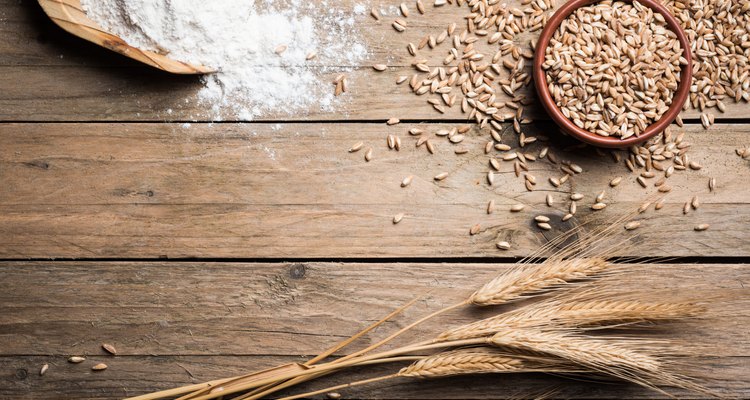
Claudio Rampinini/iStock/Getty Images
If you are trying to increase your intake of whole grains and getting tired of oatmeal, you might want to consider rolled spelt flakes. Spelt is an ancient wheat grain that dates back to 7,000 BC. It has a sweet and nutty flavor, and is high in fiber, iron and protein, making it a nutrient-rich addition to your diet.
Calories
A half-cup serving of dry rolled spelt oats contains 130 calories. By comparison, the same serving of rolled oats contains 153 calories. People who track their daily calorie intake have more success at losing weight and keeping it off, according to the U.S. Department of Agriculture.
Carbohydrates and Fiber
As a grain, most of the calories in rolled spelt come from carbohydrates. A half-cup serving contains 28 g of carbohydrates and 3 g of fiber. Carbs are the macronutrient you need in the largest quantity because it is your body's preferred source of energy. It should make up 45 to 65 percent of your daily calorie intake. Fiber is a type of carb you cannot digest. However, it offers several health benefits, including appetite control, alleviation of constipation and lowering of blood cholesterol levels. Women need 25 g of fiber a day, and men 38 g.
Fat
Rolled spelt flakes contain some fat, 1.5 g in a half-cup serving. Fat is also a macronutrient. It is used to promote growth and development, absorb fat-soluble vitamins and maintain cell membranes. Your body can also use fat as a source of energy. Fat intake should make up 20 to 35 percent of your daily calories.
Protein
Spelt is a good source of protein, containing eight of the essential amino acids your body cannot make. A half-cup serving contains 5 g of protein, which should make up 10 to 35 percent of your daily calorie intake. As a member of the wheat family, spelt contains the protein gluten and is not a good choice for people with a gluten allergy.
Iron
Spelt is a natural source of iron. A half-cup dry serving of rolled spelt flakes meets 8 percent of your daily iron needs, or about 1.4 mg. Iron is an essential mineral that assists hemoglobin with the transportation of oxygen throughout your body. A deficient intake of iron can affect oxygen delivery, making you feel weak and tired. Iron deficiency can also affect your ability to concentrate and increase your risk of developing an infection.
Related Articles
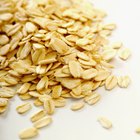
Can You Substitute Quick Cook Oats for ...
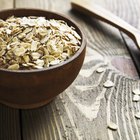
Proteins and Fiber in Oats
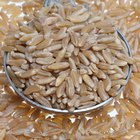
Kamut Nutrition

How Much Whole Grain Should You Eat a ...
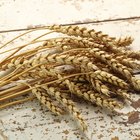
Cracked Wheat Nutrition
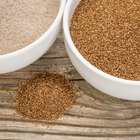
Is Teff Flour Gluten-Free?

How to Cook Steel-Cut Oats in a Slow ...

What Are the Benefits of Great Northern ...
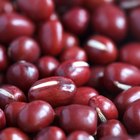
Nutrition Information for Adzuki Beans
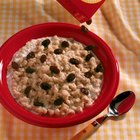
How Many Calories Do Oats Contain?
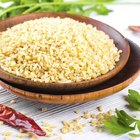
Bulgur Vs. Farro
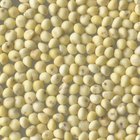
How to Cook Millet Meal
Calories in a Cucumber and Avocado Roll

The Nutrition of Stone Ground Corn
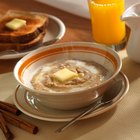
How to Microwave Steel Cut Oats

How to Make Pumpernickel Flour

What Is the Nutritional Value of Wheat?

Can I Substitute Rolled Oats for Flour ...
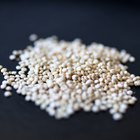
How to Cook Quinoa Flakes for Breakfast

Can You Use Vegetable Oil Instead of ...
References
Resources
Writer Bio
Jill Corleone is a registered dietitian and health coach who has been writing and sharing her love of food, nutrition and health with anyone who'll listen for almost 20 years. Her work has been featured on the Huffington Post, Diabetes Self-Management and Working Mother.
Photo Credits
Claudio Rampinini/iStock/Getty Images